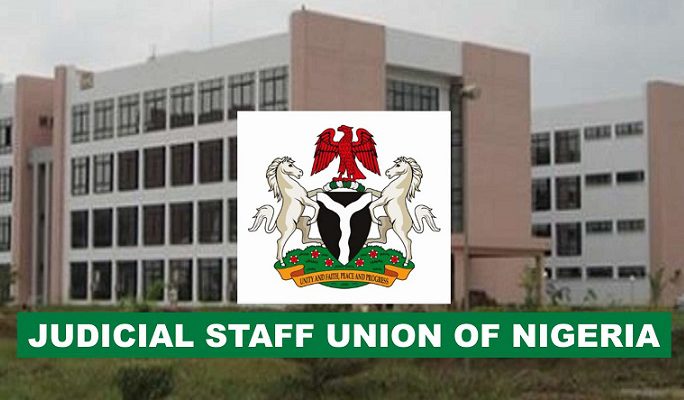/ Politics
Views: 799
Tension escalates as JUSUN president criticizes NJC, Supreme Court over strike noncompliance

Marwan Adamu, the National President of the Judiciary Staff Union of Nigeria (JUSUN), has criticized the National Judicial Council (NJC) and the Supreme Court for their silence and apparent noncompliance with the union’s ongoing strike.
Speaking at a press briefing on Monday, Adamu revealed that JUSUN’s national leadership would convene representatives from all chapters to review the current situation and determine the next course of action. His comments follow reports that staff of both the Supreme Court and NJC have continued regular operations despite the union’s directive for a nationwide work stoppage.
JUSUN had issued a circular on May 30, signed by Acting National Secretary M.J. Akwashiki, instructing all chapter chairmen to enforce a strike effective from midnight, Sunday, June 1. The strike action was initiated after protracted negotiations with the Minister of Labour and Employment failed to resolve key union demands.
The union is calling for the payment of a five-month wage award, implementation of the N70,000 national minimum wage, and enforcement of a newly approved 25–35 percent salary increase for judiciary workers.
Despite the directive, journalists who visited the Supreme Court and NJC offices on Monday observed normal activities and full staff presence, indicating a lack of adherence to the strike at the federal judiciary level.
Adamu, however, dismissed any suggestion of internal discord within the union. Addressing the situation, he stated:
“There are designated JUSUN chapter leaders at the Supreme Court. It is their responsibility to explain their chapter’s failure to comply. This strike is not a personal initiative; it was duly sanctioned by both the National Working Committee and the National Executive Council.”
He further clarified that the strike directive currently applies exclusively to federal judiciary staff, noting that state judiciary workers are not directly involved due to the specific nature of the union's outstanding demands.